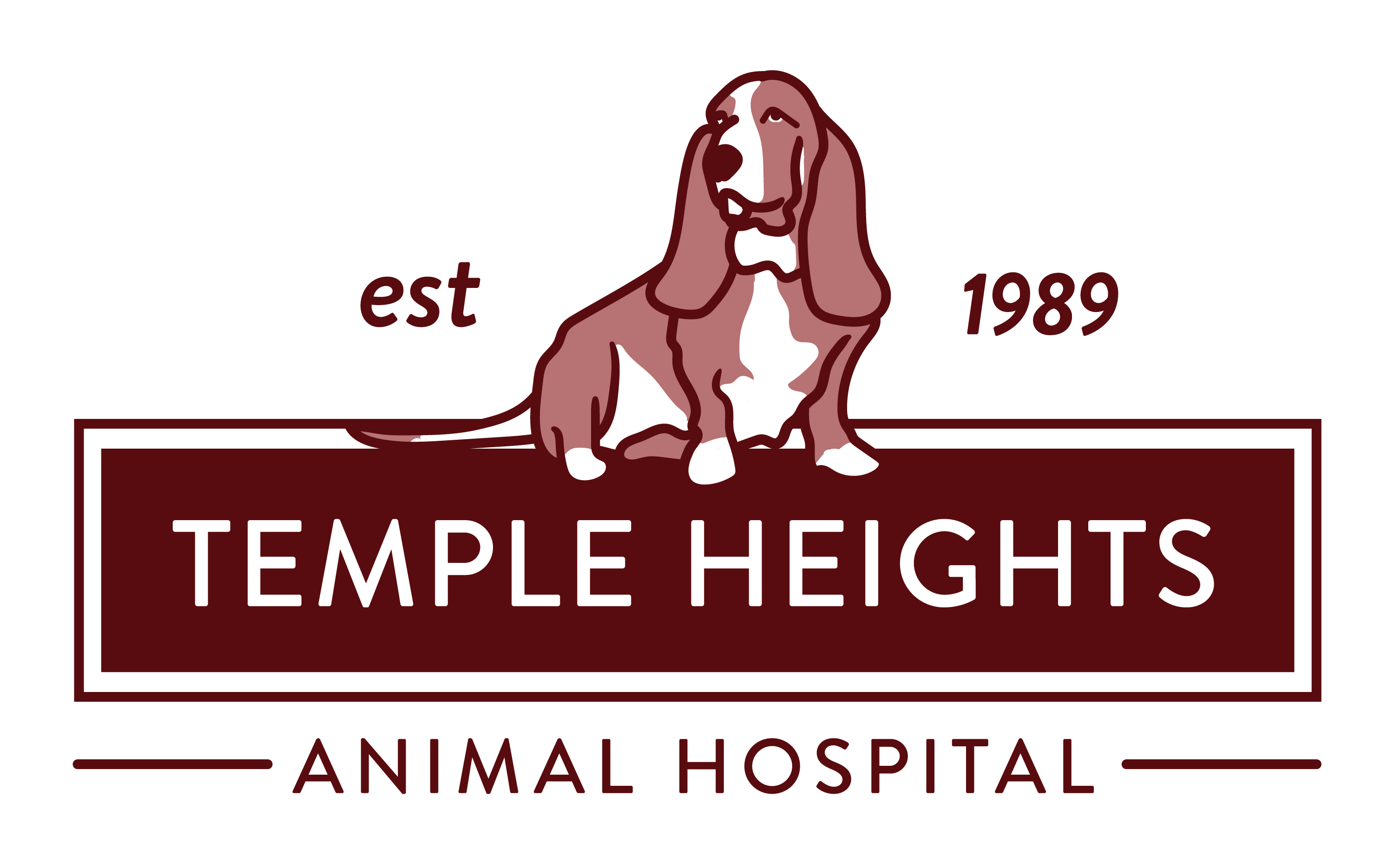We’ve covered all the daily habits you can adopt to try and keep your pet’s teeth in tip-top shape, but at what point do you stop and say:
“This mouth needs medical attention.”
Plaque (that gunky shiz you see on your pet’s teeth) eventually hardens and turns into tartar. That pesky tartar gets into the grooves of your pet’s teeth and under the gums, where it causes pain and infection. This is why regular check-ups are so important. Your veterinarian will keep a close eye on that gunk and suggest when a dental cleaning is needed!
As a pet owner, knowing the signs of dental disease is crucial.
Here are five signs you can look out for:
1. Stanky Breath
Your pet’s breath never really smells like roses (that would be nice), but if you are catching a new and…unique stench coming from their mouth, it may be an indicator that dental disease is present. Yes, you can officially refer to this symptom as “stanky breath.” Other acceptable terms are “garbage mouth” and “EW, go sit with your dad.”
2. Gingivitis
If your pet’s gums look red, irritated, or inflamed, they may be dealing with gingivitis. Gingivitis is another indicator of dental disease, so a visit with your veterinarian may be in order. You may be able to sense that your pet’s gums are feeling irritated if they start pawing or clawing at them in search of relief.
3. Excessive Plaque Build-up
If you are following along with the regular habits of keeping your pet’s teeth clean, then you’ll get a good idea of their “normal” plaque levels. You’ll also be able to better judge when the plaque is becoming excessive. Ideally, your pet’s teeth should be pearly white, just like yours. When they become yellow or brown, they need a cleaning.
4. Loss of appetite
If Fido’s favorite time of day is meal time, and suddenly not much eating is being done, pay close attention to their teeth! When dental disease is present, it can become painful for your pet to eat what they normally would (especially hard crunchy kibble). Sudden loss of appetite can also be indicative of something else happening in the mouth– like a tumor, for example. Either way, it’s a sure sign that they need a check-up with your veterinarian.
5. Bleeding from the mouth
If your pet is suddenly bleeding from the mouth during everyday activities (like after eating, while playing, etc.), the dental disease could be the cause. Healthy gums don’t bleed that easily, so if a simple paw to the mouth causes blood to appear (and if they are pawing at their mouth, to begin with), it could be time to take a closer look with a dental checkup.
And there you have it! Try these out today and see what you think. If you have further questions, or you are noticing one or more of these symptoms, contact us at Temple Heights Animal Hospital and we can help you right away!

